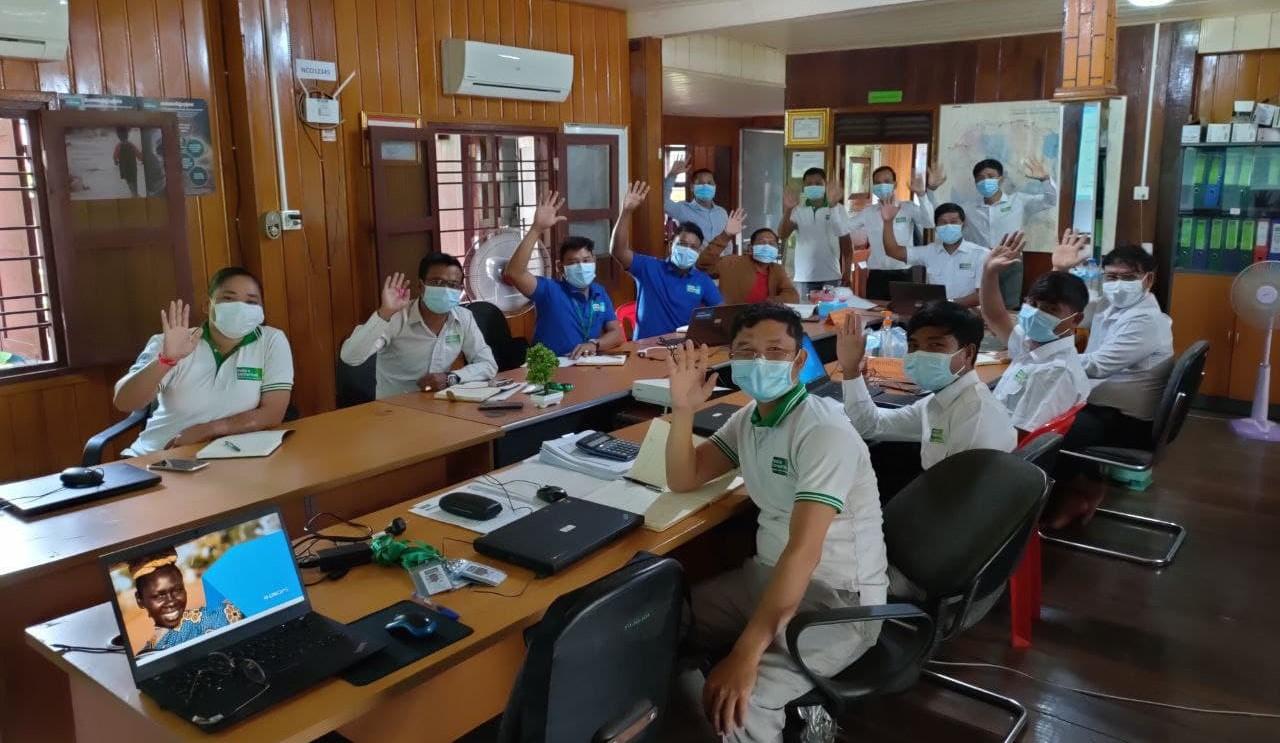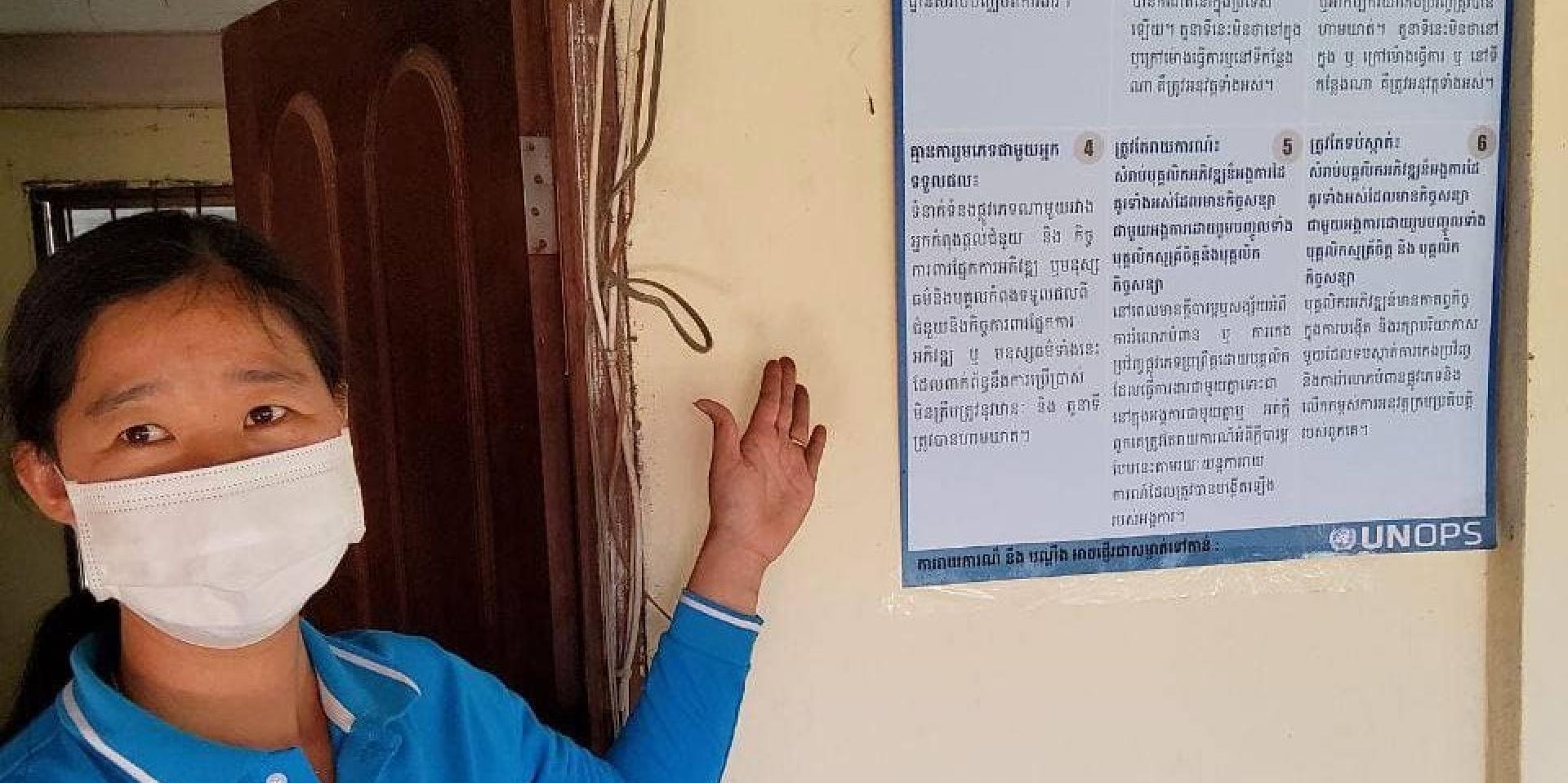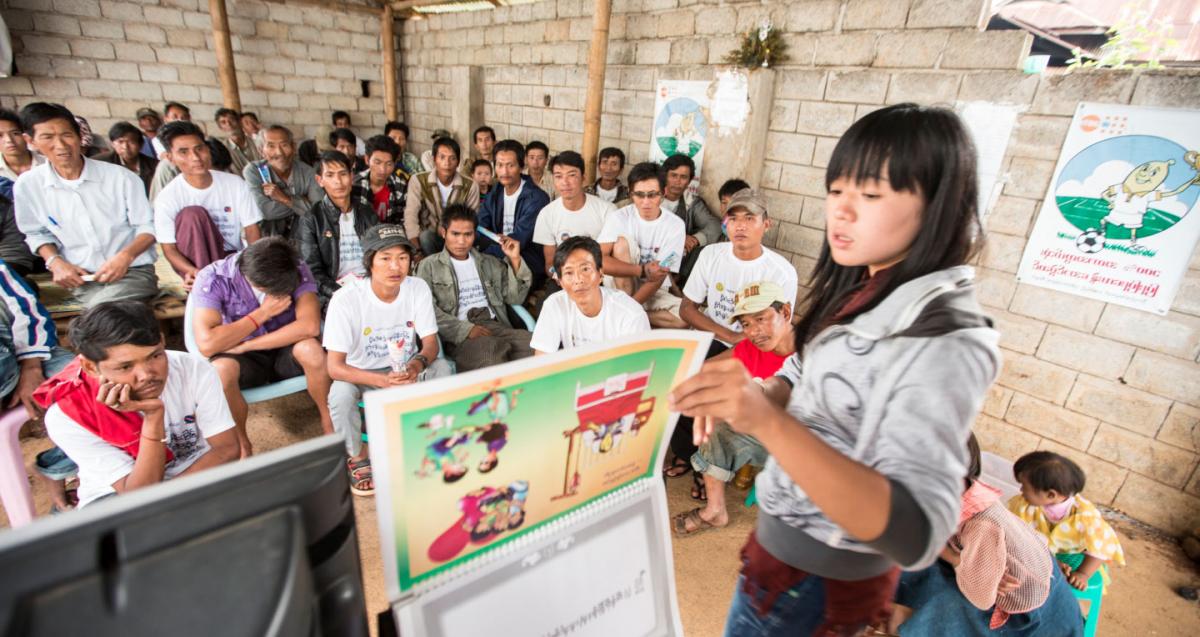To support human rights and gender equality in HIV, TB and malaria programmes, the Asia Regional Health Cluster (ARHC) of UNOPS, as the Principal Recipient for the Global Fund grants, has put in place special efforts to mainstream gender in its programmes and the provision of support to partners to ensure equity for key populations at risk or most affected in the context of the gender-based approach. In addition, PR-UNOPS also has directed its focus on building the capability of the implementing partners to prevent and respond to sexual exploitation and abuse (SEA) and ensure shared access to the benefits from the programmes and prevent unintended effects.
Gender mainstreaming in HIV, TB and malaria programmes
PR-UNOPS has been advocating for key partners and sub-recipients (SRs) to have more gender- and diversity-inclusive activities for women and children, key populations and vulnerable groups in HIV, TB and malaria programmes, towards improving human rights and gender equality.
To integrate gender components into the programmes, PR-UNOPS has developed gender briefs for the five countries in the Greater Mekong Subregion (GMS), to provide gender analysis of the critical issues and a set of recommendations for gender-responsive programmes. With these briefs, PR-UNOPS has been advocating for the strengthening of gender and women’s empowerment in the development of the National Strategic Plan and concept notes for the three diseases for the Global Fund and partners. With this advocacy for gender mainstreaming, gender-responsive activities have been considered and adopted into the plans during new grant-making. In the grant-making process, PR-UNOPS has been encouraging public and private partners to have awareness-raising and capacity building on gender, including for health workers and volunteers.
As part of the gender mainstreaming efforts, the SRs under the HIV and TB programmes have been providing capacity building and awareness-raising to the communities and front-line health workers to expand a gender-based approach across the continuum of care. This is linked to community-led services in HIV, such as psychosocial and adherence counselling, and support related to stigma, discrimination and human rights violations at the clinic and the community level. SRs have conducted advocacy meetings and training for the local authorities, faith-based leaders and ethnic group leaders, including awareness-raising to reduce stigma and discrimination and increase community sensitivity related to gender and human rights. Specifically, women among the key populations were more targeted for HIV & TB prevention and treatment services through outreach, mobile and clinic-based services. In addition, Prevention of Mother-to-Child Transmission of HIV (PMTCT) services were scaled up across the country. Implementing partners have also provided testing and treatment support for HIV-positive mothers and children and additional support to families.
Key partners under the regional malaria programme provide gender-sensitive awareness-raising sessions to their staff and volunteers. SRs have been trying to select female volunteers in vulnerable communities to ensure all people access the health services properly and in a timely way. SRs also conduct health education to empower women to make decisions related to treatment-seeking behaviour for children and to seek adequate protection against malaria during pregnancy. The distribution of long-lasting insecticidal nets (LLINs) has targeted all households and populations, including under-five children, pregnant women, and mobile/migrant family members. Moreover, testing for the G6PD enzyme has been operating for female and male patients with Plasmodium vivax to enable them to get appropriate malaria services regardless of gender. This G6PD testing ensures safe and effective delivery of treatments for both males and females in the region, especially where malaria and G6PD deficiencies have a huge impact on women and their families. The civil society organization (CSO) platform also advocates on gender issues to CSO partners in national and international forums towards increasing inclusion of gender in malaria service provision. The CSO platform also provides direct consultations with CSO partners to strengthen gender and human rights approaches.
In line with this approach, PR-UNOPS set gender-disaggregated indicators in the M&E framework to which partners report. Gender-disaggregated data are important for understanding the prevalence of the diseases and the provision of health services in terms of gender equity, to promote health equality across the three diseases. PR-UNOPS also compiles data from our SRs as part of the regular reporting on the proportion of female employees working on Global Fund-supported programmes at the central/HQ level, advocating improving gender equity and social inclusion at the leadership and decision-making levels within the Global Fund-supported programmes.
After the surge of COVID-19 in early 2020, PR-UNOPS indicated that domestic and gender-based violence (GBV) is one of the areas of concern during the COVID-19 pandemic, where movement is restricted. In collaboration with UNFPA, PR-UNOPS conducted online GBV training for SRs, particularly for non-GBV-specialized partners, to prevent GBV and increase the partners’ knowledge to adapt the GBV services in the context of COVID-19 in mid-2020. The training covered basic concepts of gender and GBV, the relation between GBV and COVID-19, and the role of health actors in addressing GBV. It brought together 38 attendees who actively participated. More of such training is planned.
Prevent and respond to sexual exploitation and abuse in the programmes
UNOPS acknowledges that “Sexual exploitation and abuse represents a catastrophic failure of protection. It brings harm to those whom we are mandated to protect and jeopardizes the reputation of the organization.” UNOPS acts with urgency to end, prevent and respond to SEA. The implementing partners of UNOPS stand at the front line of this response, and UNOPS supports them to protect affected people and communities from harm. Therefore, UNOPS implementing partners are required to meet the United Nations standards related to the Prevention of Sexual Exploitation and Abuse (PSEA).
Before the beginning of the Global Fund grants for HIV, TB and malaria for the period 2021–2023, the PSEA orientation was provided to all SRs during a virtual kick-off meeting in mid-2020 to support their project planning under the new Global Fund grants. In this orientation session, PSEA concepts and principles were shared with participants.
Moreover, the PSEA minimum requirements training and PSEA risk assessment for SRs were conducted, specifically for CSOs and non-governmental organizations (NGO) who are working closely with the communities. With support from the PSEA specialists in UNOPS, this training provided information on the practical actions and activities for PSEA based on their capacities and risk factors before the grant implementation. A total of 104 participants from 31 partner organizations in the five GMS countries – Cambodia, Lao PDR, Myanmar, Thailand and Viet Nam – attended each country's training. After these full one-day intensive training sessions, SRs assigned at least one PSEA focal point in their organization and prepared their PSEA action plans in early 2021. Based on the plans, SRs have been implementing their PSEA activities during the grant period 2021–2023. Key activities include:
- References check and staff declaration for no SEA incidents in the past in the recruitment process;
- Updating their code of conduct, including core PSEA principles and reporting mechanisms;
- An induction training or PSEA orientation session for all new staff and regular PSEA training for staff, volunteers and short-term consultants;
- Establishment of a confidential, safe reporting and complaints mechanism in the project site;
- Dissemination of appropriate PSEA IEC materials in the project sites;
- Regular reporting on PSEA indicators;
- PSEA core elements in all contracts with Sub-sub-recipients (where the SR has a subcontractor);
- Response to SEA cases in a timely and appropriate manner (e.g., mapping GBV services, case reporting, and referral of survivors to relevant services).




